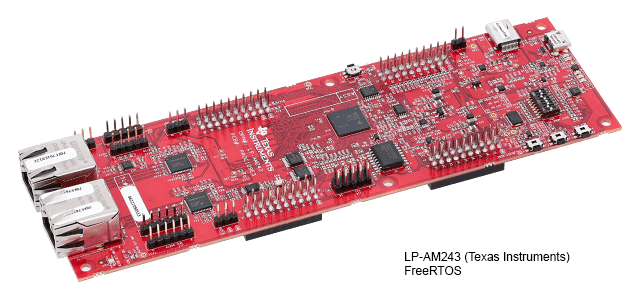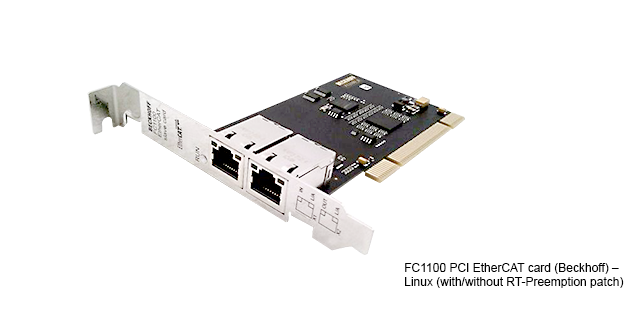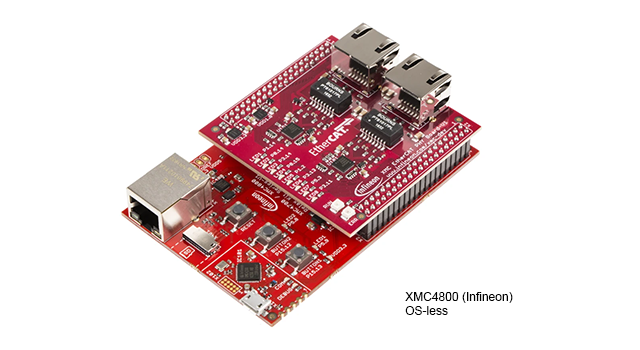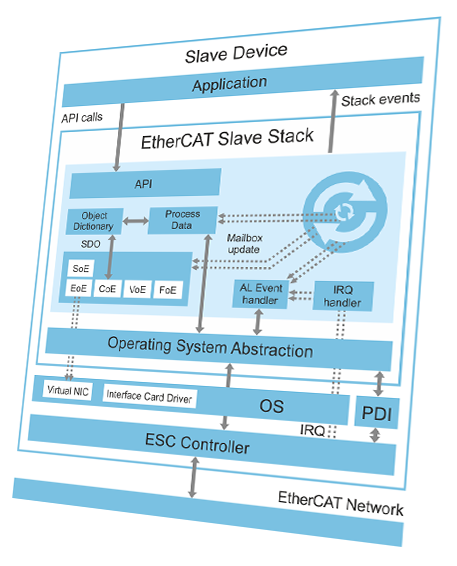The complete toolchain for integrating EtherCAT slave stacks, accelerating entry into the growing EtherCAT market.
KPA EtherCAT Slave Stack 2 is a next-generation EtherCAT Slave Stack that enables companies to bring products to market faster and with confidence.
The stack is highly portable: it runs on microcontrollers, CPUs, and DSPs – with or without an operating system – and is validated against the latest ETG standards.
Delivered as a source code, it allows straightforward integration and provides a future-proof foundation for your developments.
Features
ETG Compliance
KPA EtherCAT Slave Stack is fully compliant with the EtherCAT Technology Group (ETG) specifications.
Each release is verified using the official EtherCAT Conformance Test Tool (CTT) to ensure full conformity with the latest EtherCAT standards.


EtherCAT Functions
- Mailbox protocols: CoE, EoE, FoE, SoE VoE
- Distributed Clocks (DC)
- Different scan rates
Hardware platforms
KPA EtherCAT Slave Stack may be presented as a software stack with an embedded Hardware Abstraction Layer (typically implemented through OSAL and driver part), which can be used for simple support of any EtherCAT ASIC and communication interface (PDI) between ASIC and a microcontroller.
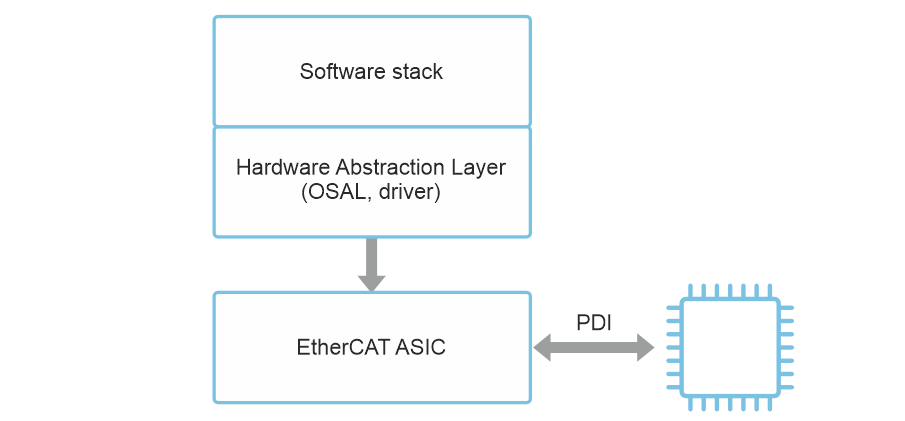
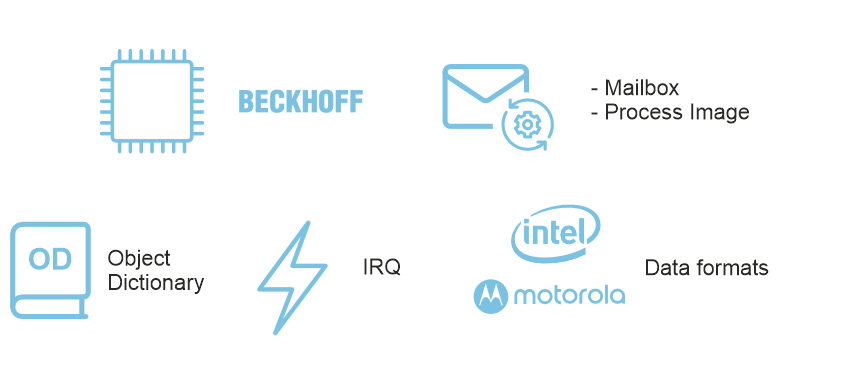
Interfaces
- Compatible with any Beckhoff EtherCAT Slave Controllers (ESC):
- ASIC ET 1xxx
- IP-Core
- IRQ-handling of hardware events
- Polling of mailbox and Process Image
- Static Object Dictionary (OD) with pointer given from application
- Supporting Intel- and Motorola-data formats
Optimized memory usage
The amount of RAM used depends on the application design and the size of the Object Dictionary (OD). For example, in case of a static OD usage (a build based on source code):
RAM: >= 8 KB
ROM (flash): >= 64 KB
Moreover, to minimize the final size of the application, KPA EtherCAT Slave Stack can be customized by editing the configuration file. For example, it is possible to deactivate Mailbox EoE, Mailbox VoE and Mailbox FoE.
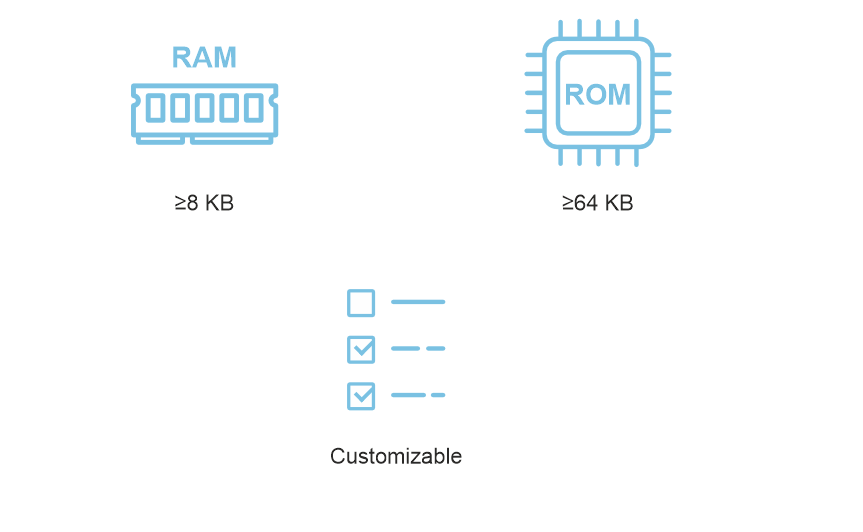
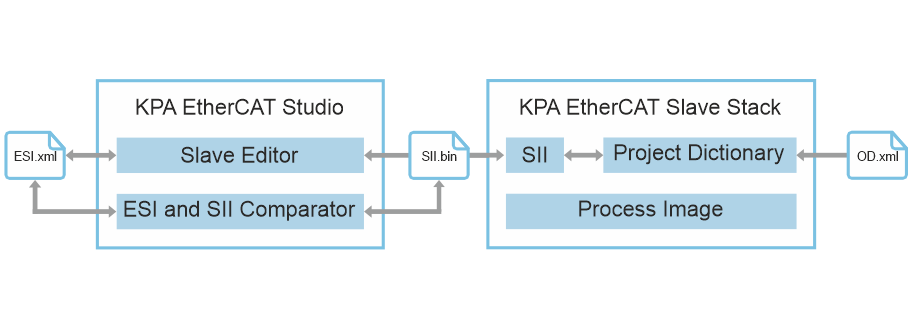
Part of the KPA EtherCAT Ecosystem
KPA EtherCAT Slave Stack 2 includes KPA EtherCAT Studio 2 for configuring the system, giving you a complete toolchain for development, testing, and validation.
With this ecosystem, you can:
- Develop and debug EtherCAT devices faster
- Test interoperability in a real EtherCAT environment
- Validate conformance using the latest ETG standards
- Move confidently from prototype to production
Key Enhancements
Compared to its predecessor, KPA EtherCAT Slave Stack 2 provides:
- Extended portability across CPUs, DSPs, and microcontrollers
- Improved compliance with the latest ETG standards
- Optimized memory usage for embedded platforms
- A future-proof foundation for long-term developments
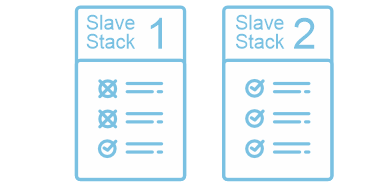
Ready-to-use Integration Packages
KPA EtherCAT Slave Stack 2 is available as a set of ready-to-use integration packages – pre-integrated, validated, and optimized for specific operating systems and hardware platforms. Each package enables faster evaluation and a shorter path to market, providing a stable and ETG-compliant implementation of the EtherCAT protocol.
Available packages:
- FreeRTOS / TI LP-AM243 – validated Integration Package
- Linux (PREEMPT_RT) / Beckhoff FC1100 PCI card – validated Integration Package
- No-OS / Infineon XMC4800 – validated Integration Package
- Custom OS / Hardware – available on request
The stack architecture enables easy adaptation to customer-specific hardware and other operating systems, including Xenomai, RTX64, QNX, and INtime. Integration services can be provided based on customer-specific requirements.
Each integration package of KPA EtherCAT Slave Stack 2 is available in three editions – from free evaluation to full-featured professional deployment.
Choose the edition that best fits your project stage:
Evaluation (Trial) for testing and validation, Consumer for ready-to-use integration, and Professional for full source-code access and customization.
